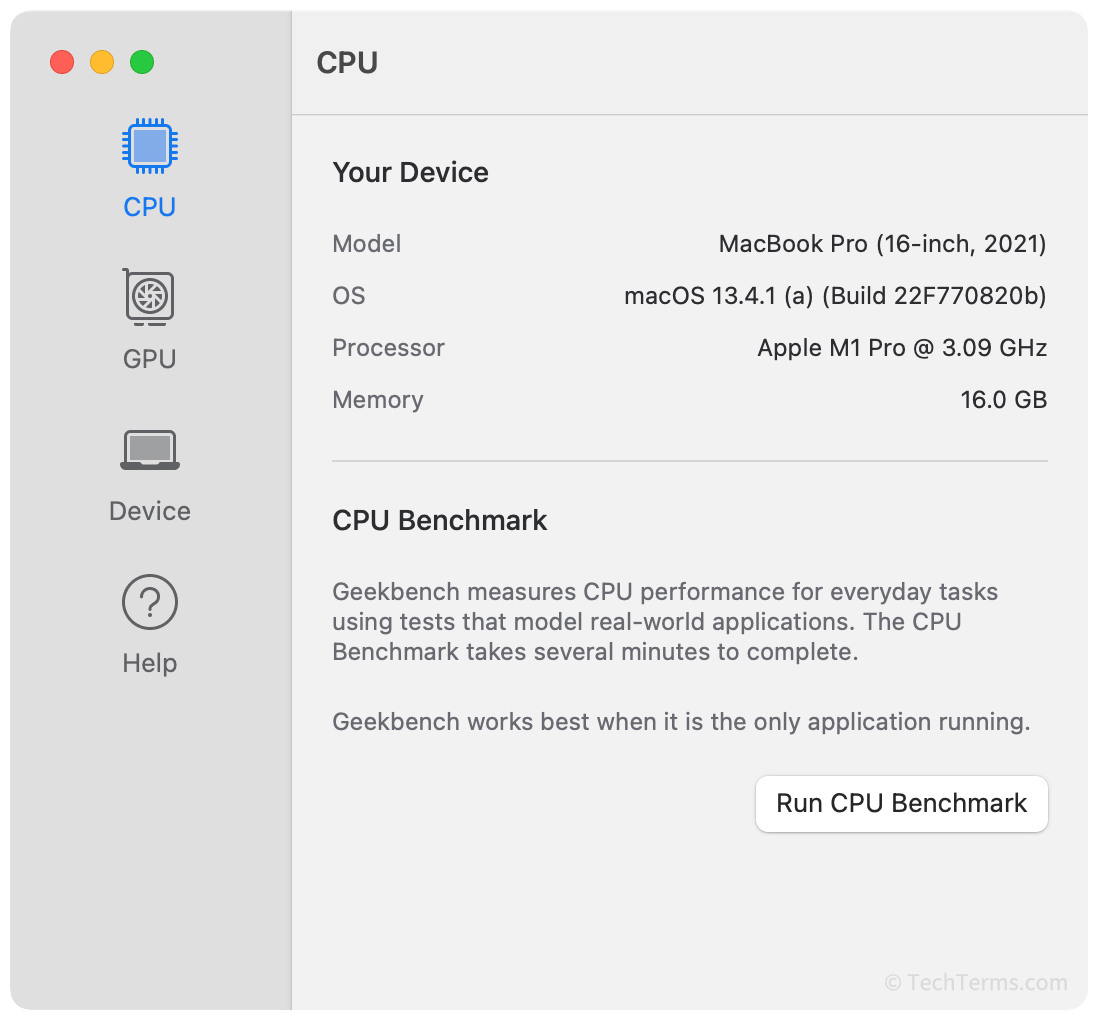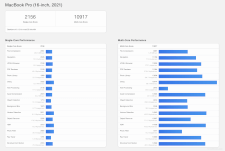Benchmark
A benchmark is a series of tests that measure a computer's performance relative to other computers. A benchmark test runs a consistent set of tasks every time and presents the results as a numerical score, helping IT workers and power users compare the performance of one computer to another. Benchmark suites can test a computer's overall performance or focus specifically on hardware components like the CPU, GPU, and storage disks.
Benchmarks help computer users evaluate hardware through actual performance instead of comparing technical specifications. For example, instead of comparing two CPUs by looking at clock speed and core count, you can compare benchmark scores to see how well each performs at actual processing tasks. One popular benchmark, Geekbench, automates more than a dozen tasks in its CPU test, including file compression, HTML rendering, and image processing algorithms. It combines the results of each test into a final numeric score that reflects a CPU's overall performance. You can compare the total scores for different CPUs to get an idea of relative performance, with higher scores indicating a faster processor. Other popular benchmarking suites include PCMark and Novabench.

Benchmarking applications come in two varieties: real-world benchmarks and synthetic benchmarks. A real-world benchmark automates a series of tasks in actual applications, simulating how the computer performs in everyday use. A synthetic benchmark instead runs specially written calculations and functions that test the limits of a computer's performance, but may not reflect how most people use their devices. While real-world tests can help provide insight into how a specific system configuration meets a person's needs, synthetic benchmarks are more helpful for comparing computer hardware side-by-side.
 Test Your Knowledge
Test Your Knowledge